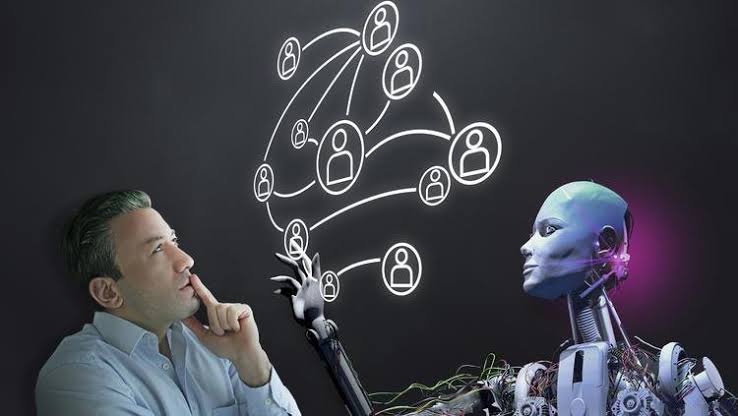AI has the potential to completely transform the human resources industry, but it also exposes HR workers to certain risks. The potential of artificial intelligence (AI) to provide cutting-edge solutions has been a major focus of conversation among human resources (HR) experts as businesses around the world struggle with the issues of talent acquisition, employee retention, and optimising workplace dynamics.
The convergence of data-driven efficiency and improved decision-making that AI’s inclusion into HR symbolises for many industry insiders and onlookers is encouraging. Organisations are increasingly using AI-driven solutions to automate laborious, once human-intuitive tasks.
For instance, highly developed AI algorithms may sift through enormous pools of employment applications and discover applicants whose profiles best match the job description. The hiring procedure may be sped up as a result, and the needs of the organisation will be more closely met by the shortlisted individuals.
AI’s impact on HR extends beyond recruitment and may be seen in a number of different areas. Companies can foresee possible employee turnover thanks to predictive analytics powered by AI, which enables HR experts to react early and solve underlying problems. Through a proactive strategy, attrition rates may be decreased while employee satisfaction is increased.
Although there may be many advantages to AI in HR, its integration is not without difficulties. There is constant discussion regarding issues including data privacy, the possibility of algorithmic biases, and the danger of relying too heavily on technology at the expense of human intuition.
The ultimate objective of the HR sector as it navigates these complications is to harness the power of AI in ways that complement human expertise and maintain the HR philosophy of being person-centric.
The possibility of customised AI in HR
Moving away from general, one-size-fits-all solutions is the new AI trend. More customised AI solutions that are catered to particular requirements are required by the present corporate environment, which is distinguished by its diversity and distinctive problems. This is especially true for the human resources industry, where subtle differences in corporate culture, employee dynamics, and organisational objectives can occur.
For instance, a multinational firm with a diversified staff dispersed across numerous geographies would profit from an AI system created to comprehend and account for local talent pools, employment rules, and cultural quirks in each place..
A tech firm, on the other hand, would look for an AI solution that prioritises skills matching, quick onboarding, and remote work dynamics.
In response to this issue, a number of businesses are stepping up, claiming that AI teams can match or even outperform human efficiency while being more cost-effective. One such business is Olympia.
It provides organisations with AI teams adapted to their unique needs, with a focus on startups and solitary business owners. These AI teams are made to become familiar with the nuances of a business’s operations, from the requirement for immediate cooperation to in-depth data analytics.
Although there are several learning curves along the way, personalised AI in HR has a lot of potential. In order to maintain the AI’s alignment with their changing goals, it requires a symbiotic connection where businesses supply feedback continuously.
HR-related AI issues and challenges
Human insight’s inherent worth is frequently brought up in discussions about AI in HR. While technology provides tools and answers, the essence of human resources is firmly entrenched in comprehension, empathy, and the capacity to discern subtleties beyond bare facts.
Security and data privacy issues often come up as major concerns. Securing this information is essential because AI systems process a lot of personal and professional data. Legal repercussions, as well as effects on employee morale and trust, could result from a breach or misuse. Adaptability is becoming more and more necessary as AI develops. Businesses will need to make sure that their HR departments stay current with new developments, which may need ongoing training and upskilling.
HR’s future navigation
New paradigms and difficulties are being presented by the HR industry’s adoption of AI. The core of human resources has historically been understanding people’s objectives and fostering trust, even as AI holds up the promise of streamlined operations and predictive insights.
According to Loskutova, “HR is evolving under AI’s profound influence — it’s more than a tool; it’s a storm reshaping our landscape.” Our industries are on the verge of being completely reinvented by AI in an automated future. A story about humans will eventually give way to a saga about our dance and conflict with algorithms in the HR world. It’s not just about getting used to a new work schedule; it’s also about surviving the onslaught of our society’s complete transformation.
Conclusively businesses and HR professionals are exposed to a variety of viewpoints on the function and impact of AI in this dynamic field, reflecting the multidimensional nature of the continuing conversation in the HR landscape. The industry is at a critical crossroads where the fusion of technology and human intuition will influence the course of workforce dynamics for years to come. This is true as the incorporation of AI continues to shape some parts of HR.


